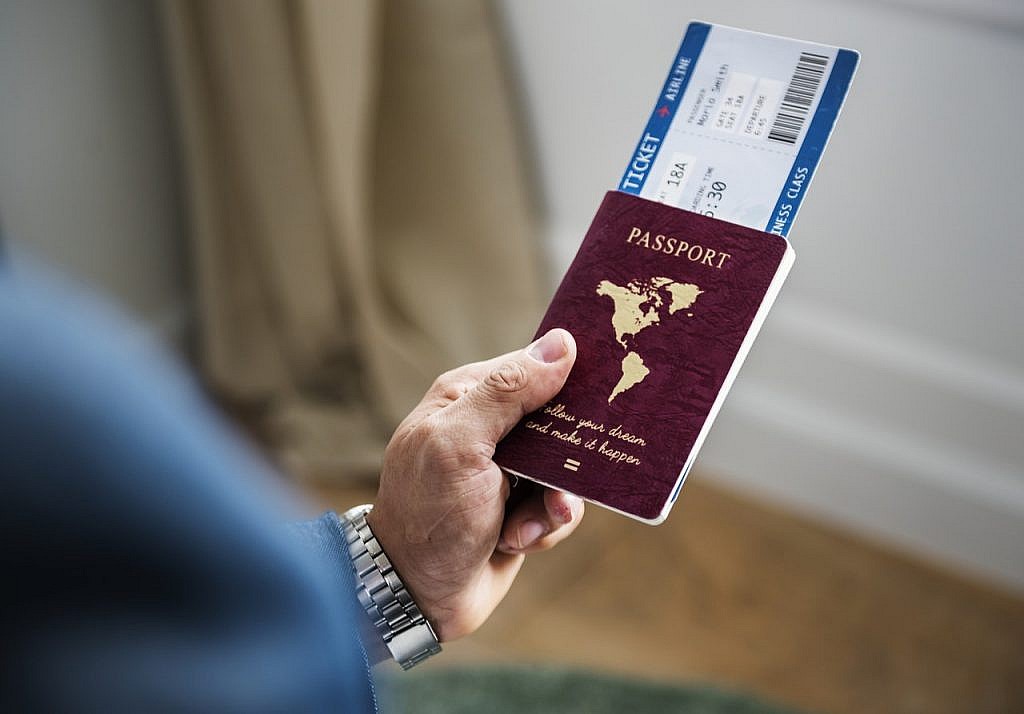About once or twice a month, I get the following question: “If I write my relative and invitation letter, can they get a tourist visa to come visit me?” Believe it or not, the answer to this question is not an easy one. I think the reasoning behind the question is that people assume that a tourist visa is about who you have in the US or what you’re coming to do. Unfortunately, who you have in the U.S. is not a central factor in obtaining a tourist visa, and what you are coming to do is a part of the equation, albeit, a very small one.
What is a Tourist Visa?
What is commonly known as a tourist visa has an official name: a B1/B2 visa.
The B1/B2 Visa can be used for various purposes as explained in the Immigration and Nationality Act (INA) 101(a)(15). All the other purposes have their own requirements and quirks. This article does not discuss all the other purposes of the B1/B2 visa; I will only discuss one of the purposes, namely, traveling for business or pleasure. This purpose is well delineated under subsection (B): the alien must have “a residence in a foreign country which he has no intention of abandoning and who is visiting the United States temporarily for business or temporarily for pleasure.
One thing is made clear, by the INA’s definition, people with a B1/B2 visa are not considered immigrants and must not intend to reside in the U.S. The manual used by embassy and consulate personnel, the Foreign Affairs Manual (FAM) explicitly states that the officers are to look for three criteria:
- Does the person have a residence in a foreign country which they do not intend to abandon?
- Do they intend to enter the United States for a limited period of time and is the stated time consistent with what they say they are coming to do (for example, staying for six months even though you’re only coming to a wedding)?
- Is the person intending to come to the U.S. for the sole purpose of participating in legitimate activities relating to business or pleasure?
9 FAM 402.2-2 (B).
Officers are instructed to deny any and all visas who fail to meet one or more of the three criteria.
However, even though the criteria are only three, each of them says so much. In essence, the tourist visa is about who you are, your education, your finances, your ties to your country, in cases, your nationality, and finally, what you are coming to do in the US.
So what factors do officers look at to determine whether you meet the criteria? Below are a few examples:
FINANCES
What is the person’s financial situation? Do they own properties, bank accounts, profitable businesses, homes, or cars? The applicant has to show that they have a vested interest in returning home. In other words, for him or her, it is not worth it to overstay in the U.S.
SOLID RELATIONSHIPS
Who do you have in your home country? Are you married with several kids enrolled in school, or are you a single college student with a spirit of adventure? Do you have a job waiting for you when you return? Do you have elderly parents for whom you are a caretaker? The officer will consider your relationships with people in your home country.
NATIONALITY
There are countries that have a low history of migration to the US. This could be due to stable political and economic conditions which make their citizens less likely to take a chance in another country. Simply put, “if things are excellent at home, why would I go anywhere else?” Some countries have agreements with the US by which its citizens don’t even need a tourist visa (for example, South Korea or Spain) if they just want to come for less than 90 days. If you’re from a low-migration country, chances are, you’ll be able to get a tourist visa with ease.
PURPOSE OF YOUR TRIP AND ANY EVIDENCE YOU CAN PROVIDE TO SUPPORT IT
Finally! This is where you aunt or sister who live in the U.S. can write that letter of “invitation.” As I mentioned at the beginning of the article, this is just a very small part of the equation. If you are coming to the U.S. for a conference, for example, and you are one of the speakers, perhaps a letter of invitation to speak might be a good document to present at your interview. However, the officer will be reviewing it in combination with the other evidence for the three criteria laid out above.
I hope this article has shed some light into whether letters of invitation “move the needle” during tourist visa interviews. Letters of invitation can be helpful but only if the other pieces of the puzzle are present.
Martí Law Firm is able to assist you with your tourist visa application and guide you through the interview process. Call us today for a consultation!
Tel: 678-796-8845
Email: hello@martilawfirm.com
This article includes general information about legal issues and developments in the law. Such materials are for informational purposes only and may not reflect the most current legal developments. This article is not intended, and must not be taken, as legal advice on any particular set of facts or circumstances. You need to contact a lawyer licensed in your jurisdiction for advice on specific legal issues problems

 Español
Español
